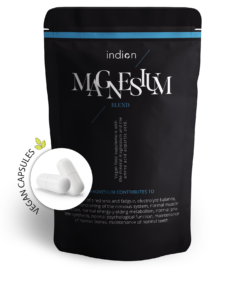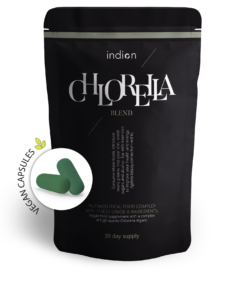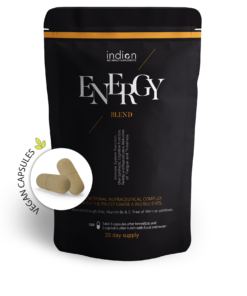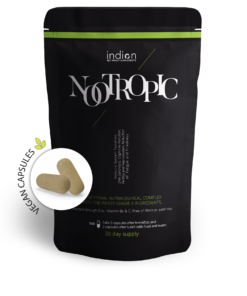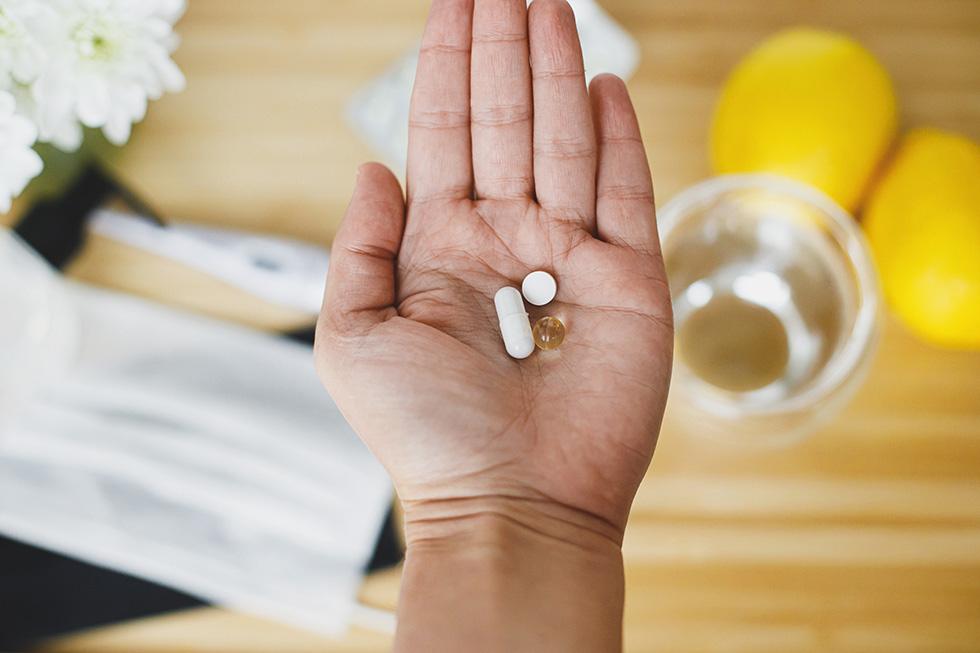Getting adequate zinc has numerous health and performance benefits. Many people are familiar with zinc because of its immune-boosting effects, but this mineral is a health marvel. Despite its importance in health and performance, many people, even in wealthy countries, are in danger of zinc deficiency. “Zinc is such an essential element in human health that even a tiny deficit is a catastrophe,” scientists write in one evaluation of zinc’s importance.
HOW DOES ZINC BENEFIT HEALTH?
Every tissue in the body has zinc. It plays a direct role in cell division and maintaining optimal hormone levels. Zinc is an antioxidant that can help prevent cancer and other disorders.
Athletes need zinc as well. Zinc deficiency is detrimental to physical performance, energy levels, and body composition. Zinc impacts protein synthesis and is necessary for red and white blood cell activity. Our bones, pancreas, kidneys, liver, and retina are all high in this substance.
WHAT ARE THE HEALTH RISKS OF LOW ZINC?
When you are zinc deficient, your body suffers. Immune function is harmed by zinc deficiency, and you’re more likely to develop complications from infections like covid and the flu. Zinc deficiency results in blood sugar problems, fatigue, and depression. Zinc deficiency causes infertility in both men and women, as well as decreased libido. Low zinc levels also hasten the aging process and exacerbate the impact of stress on the body.
This article outlines ten reasons to pay attention to your zinc levels. You should know that zinc deficiency isn’t just a problem for poor individuals in developing countries. Rather, it is common in the United States and the United Kingdom, particularly in areas where cereal and grain proteins are consumed in large quantities.
#1 IMPROVE ATHLETIC PERFORMANCE AND STRENGTH
Zinc’s effect on sports performance is a lesser-known benefit. Because zinc is essential for hormone production, it has an impact on training strength development. According to research, having enough zinc in the body boosts the release of testosterone, growth hormone, and insulin-like growth factor-1 (IGF-1). When hormone levels fall, athletic performance and strength capacity suffer.
Giving trained athletes a zinc supplement for four weeks before an arduous exercise test resulted in a higher post-workout testosterone response than a placebo, according to a recent study. Zinc increases the rate of conversion of androstenedione to testosterone, causing the body to create more testosterone.
Healthy zinc levels will not only improve performance and muscle building in both men and women, but the post-workout hormone surge will also help with recuperation.
#2 GET THE SUPER ANTIOXIDANT EFFECTS OF ZINC
Zinc is a fantastic antioxidant. An antioxidant’s job is to connect with and neutralize free radicals that cause cell damage in the body. Zinc is very effective at counteracting the negative effects of excessive iron levels. Zinc also fights free radicals, which are responsible for inflammation all over the body.
#3 IMPROVE SLEEP, COGNITION & ENERGY LEVELS
Zinc offers numerous cognitive benefits. This mineral is necessary for neurotransmitter function and aids in cognitive function. Zinc, for example, modulates dopamine, a stimulating neurotransmitter that provides motivation and focus. Zinc can help youngsters with ADHD. In one trial of 400 children with ADHD, administering 150 mg of zinc sulfate daily improved impaired social behavior and made individuals less hyperactive and impulsive than a placebo.
Zinc also affects the quality and quantity of sleep. Zinc aids in the production of melatonin, an important hormone for restful sleep.
#4 ELEVATE MOOD AND AVOID DEPRESSION
The specific mechanism by which zinc reduces depression is uncertain, however it is thought to involve neurotransmitters and inflammation. Zinc, for example, controls the creation of dopamine, a neurotransmitter that improves energy, mood, and reward-driven learning.
Zinc also functions as an antioxidant, assisting in the removal of inflammatory indicators such as C-reactive protein and tumor necrosis factor, both of which cause cell damage.
Low zinc levels may put women at a higher risk of depression than males. In a study of antidepressant-taking women, those with low zinc levels had a five-fold increased chance of developing depression. It’s considered that the gender-based link between low zinc and sadness has something to do with how zinc affects energy levels and estrogen production.
Estrogen is involved in the creation of serotonin, the feel-good neurotransmitter, in women, and zinc supplementation can enhance the density of serotonin receptors in the brain.
#5 PREVENT ALZHEIMER’S & PROMOTE BRAIN HEALTH
Zinc’s brain benefits include protection against cognitive deterioration. Zinc’s powerful antioxidant properties enable it to effectively remove heavy metals from the brain. Heavy metals like lead and mercury can accumulate in brain tissue and cause harm if zinc levels are low. Zinc also helps brain cells maintain their cellular balance. This combination aids in the prevention of neurodegeneration and Alzheimer’s disease.
#6 SUPPORTS FEMALE REPRODUCTIVE HEALTH AND FERTILITY
Zinc is involved in the oocyte or egg development process in women. When a woman is lacking in zinc, the egg does not mature properly and ovulation is hampered, resulting in infertility.
Zinc deficiency makes it difficult for women to use estrogen and progesterone effectively, compromising reproductive health. Estrogen causes poor reproductive health and breast cancer when levels are too high or processed inefficiently.
#7 SUPPORTS MALE REPRODUCTIVE HEALTH AND FERTILITY
Zinc is an important mineral for maintaining healthy testosterone levels. To function properly, the cells of the male prostate require a high quantity of zinc. Low zinc levels in men reduce testosterone production, increase the risk of prostate cancer, and induce infertility. Low libido is caused by zinc deficiency.
Low zinc levels were found to be directly connected with low testosterone levels in a study of 88 men aged 40 to 60 years. Men with insufficient zinc levels were more likely to experience male menopause symptoms..
Zinc is also required for the production of enzymes that trigger cell division, although male prostate tissue requires ten times more zinc than other cells in the body to remain healthy. Zinc deficiency in the prostate protects cells from damage, inflammation, and cancer. Furthermore, once prostate cells are injured and malignant, they lose their ability to store zinc, resulting in increased cancer cell proliferation and tumor formation.
According to the researchers, zinc is a “promising anti-cancer drug,” and adequate supplementation is the best prophylactic measure when men are healthy and free of cancer symptoms. Zinc can also aid in the prevention of ovarian, breast, and colorectal malignancies, they say.
#8 BOOSTS IMMUNE FUNCTION
According to Ananda Prasad, a prominent researcher on zinc and health, adequate zinc intake can help with a number of serious health problems, including poor immune function.
Because zinc is necessary for good cell proliferation, it may play a role in the development of malignancies. In recent studies, zinc deficiency has been linked to malignancies of the breast, colon, ovary, lung, skin.
Zinc deficiency adversely affects the immune system because zinc deficiency leads to a rapid and direct reduction in T-cell function. When viruses, pathogens or health problems occur, the human body’s immune system is activated. People over the age of 60 are more likely to be deficient in zinc, and this is not just due to inadequate dietary intake. There is evidence that the need for zinc increases with age to fight inflammation, support the immune system and ensure healthy cell function.
#9 IMPROVE CARDIOVASCULAR HEALTH
Zinc is beneficial to maintaining the health of cardiovascular cells. It supports the endothelium, the thin layer of cells that lines the blood vessels and plays a major role in circulation. Low zinc can cause a deficiency in the endothelial barrier, which leads to high cholesterol buildup and inflammation. Cholesterol and inflammation increase your risk of heart disease.
Studies show that poor zinc status can amplify the negative cardiovascular effects of a high-fat, high-cholesterol diet. Older adults are especially susceptible to inflammatory markers including C-reactive proteins and cytokines, which have been called “slow, silent killers.”
#10 IMPROVE METABOLISM AND PREVENT DIABETES
Zinc improves the way cells respond to hormones like insulin. Zinc deficiency affects insulin health in three ways. Zinc binds to insulin, allowing the pancreas to store enough insulin to release when glucose enters the bloodstream.
Second, zinc helps to maintain cell health. It’s part of the enzymes that allow insulin to attach to cells and allow glucose to enter and be used as fuel.
Third, zinc contains anti-inflammatory properties that keep cells insulin-responsive. The ability of cells to bind with insulin is harmed by C-reactive protein and other inflammatory indicators.
WHO IS AT THE GREATEST RISK OF LOW ZINC?
Zinc shortage can be caused by a lack of zinc-rich meals. Zinc is abundant in meat, fish (oysters have the highest content of any known foods), and dairy.
Zinc is found in whole grains and legumes, although it is poorly absorbed by the body. Plant meals contain phytates, which prevent the body from absorbing zinc. The most vulnerable to zinc deficiency are vegetarians, but alcoholics and persons with digestive problems or low stomach acid are also in danger.
Medications can cause zinc shortage as well as low levels of nearly all important minerals. Deficiency is more common in women who use the birth control pill or hormone replacement treatment.
SYMPTOMS OF ZINC DEFICIENCY
Low zinc causes a change in taste, leading to a desire for saltier, sweeter foods. Other symptoms of zinc deficiency include diarrhea, low energy, chronic fatigue, infertility, poor immunity, weak memory, inability to focus, ADD symptoms, sluggish wound healing, nerve malfunction, and ringing in the ears.
Although symptoms may be present, they are generally difficult to link to zinc deficiency without a zinc test since they are so varied and associated with other health concerns.
HOW TO TEST ZINC LEVEL
Before you start consuming zinc pills at random, keep in mind that dietary zinc has a limit. Toxic levels of zinc can harm the reproductive and immunological systems. Scientists recommend doing a zinc test to determine your current level and then supplementing accordingly. Your zinc levels will rise once you begin taking it, and you should repeat the test six to eight weeks later for the best results.
Getting a red blood cell zinc test and continuously monitoring zinc levels when supplementing is the best technique to test your zinc level. Other procedures, such as a zinc taste test, are available as well. They are less dependable, particularly in patients who have a moderate zinc shortage.
SUPPLEMENTATION TIPS
You can take a zinc chelate like Zinc Bisglycinate to address a zinc deficit or for immune support. It delivers easily absorbable zinc.
Take zinc with copper for long-term nutrition. The antioxidant superoxide dismutase combines zinc and copper. Taking zinc alone can deplete copper, resulting in dopamine and epinephrine abnormalities.
Zinc is a fantastic supplement when combined with copper and selenium. These trace minerals help the body’s antioxidant defenses and immunological response by working together. Because of their effect on hormones and neurotransmitter balance, they can help with anxiety, stress, sadness, and exhaustion.
Nutritional supplements
€39,90
Nutritional supplements
€39,90
Nutritional supplements
€39,90
Nutritional supplements
€59,90
